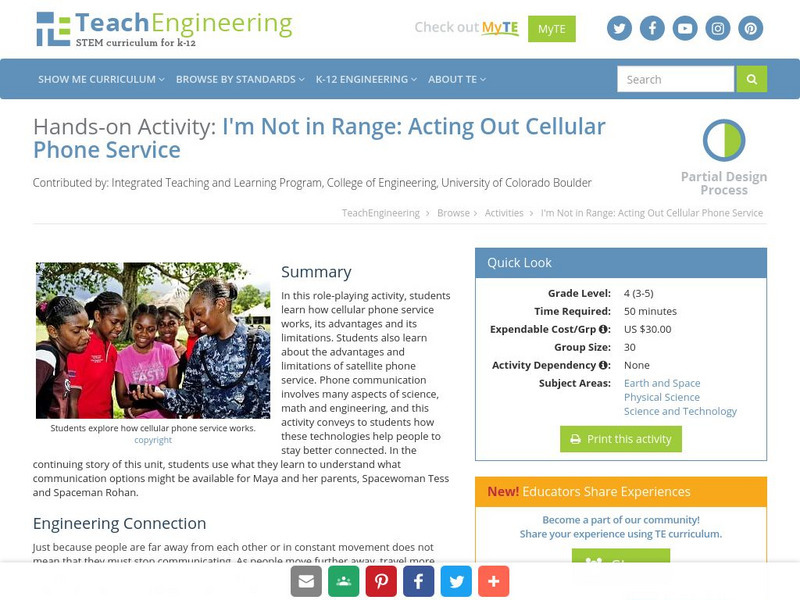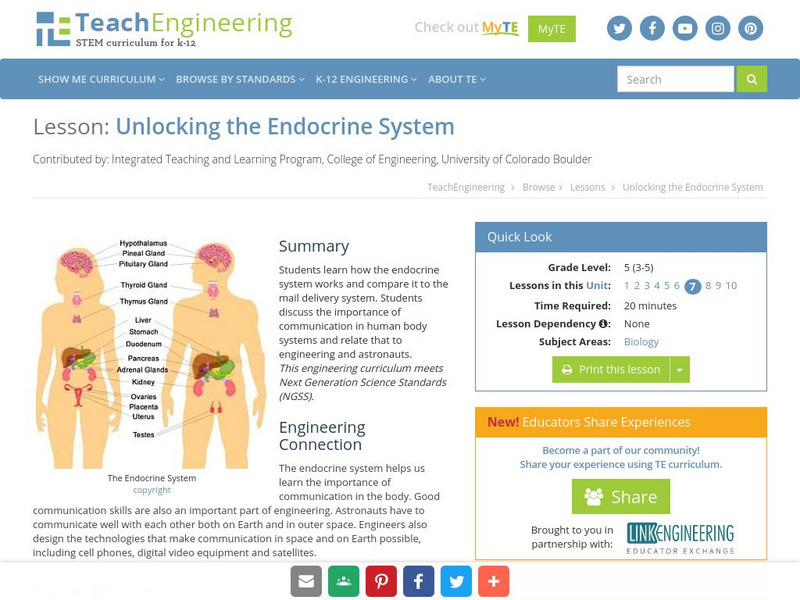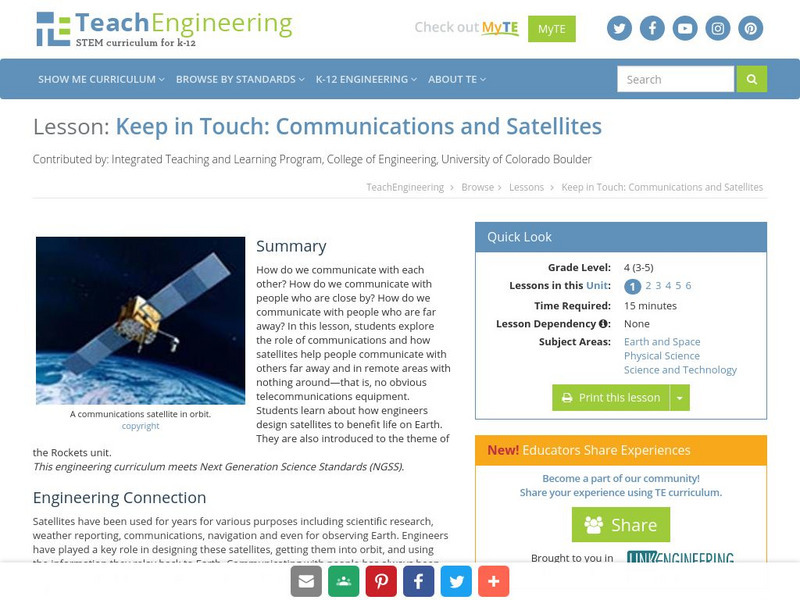TeachEngineering
Teach Engineering: Green Marketing
Students learn basic marketing concepts and use professional marketing techniques to compose an advertisement for a hybrid vehicle. In the process, they learn the principles of comparative analysis.
TryEngineering
Try Engineering: Electric Messages: Then and Now
Lesson investigates electronic communication from the Morse Code system to text messaging. To learn about this, students construct simple circuits, send messages to each other, and explore the history and impact of communication.
TeachEngineering
Teach Engineering: I'm Not in Range
In this role-playing activity, students learn how cellular phone service works, its advantages and its limitations. Students also learn about the advantages and limitations of satellite phone service. Phone communication involves many...
TeachEngineering
Teach Engineering: Unlocking the Endocrine System
Students learn how the endocrine system works and compare it to the mail delivery system. Students discuss the importance of communication in human body systems and relate that to engineering and astronauts.
TeachEngineering
Teach Engineering: Keep in Touch: Communications and Satellites
How do we communicate with each other? How do we communicate with people who are close by? How do we communicate with people who are far away? In this lesson, learners will explore the role of communications and how satellites help...
University of Toronto (Canada)
University of Toronto: Engineering Communication Program: Memos
This site shows exactly how to write a memo. The site talks about the components to use: header, purpose, summary, discussion, action.
National High Magnetic Field Laboratory
Magnet Academy: Coaxial Cable 1929
As more and more American households acquired telephones, the pressure was on to create a better cable to accommodate the increasing demand. Engineers Lloyd Espenschied and Herman Affel answered the call.





